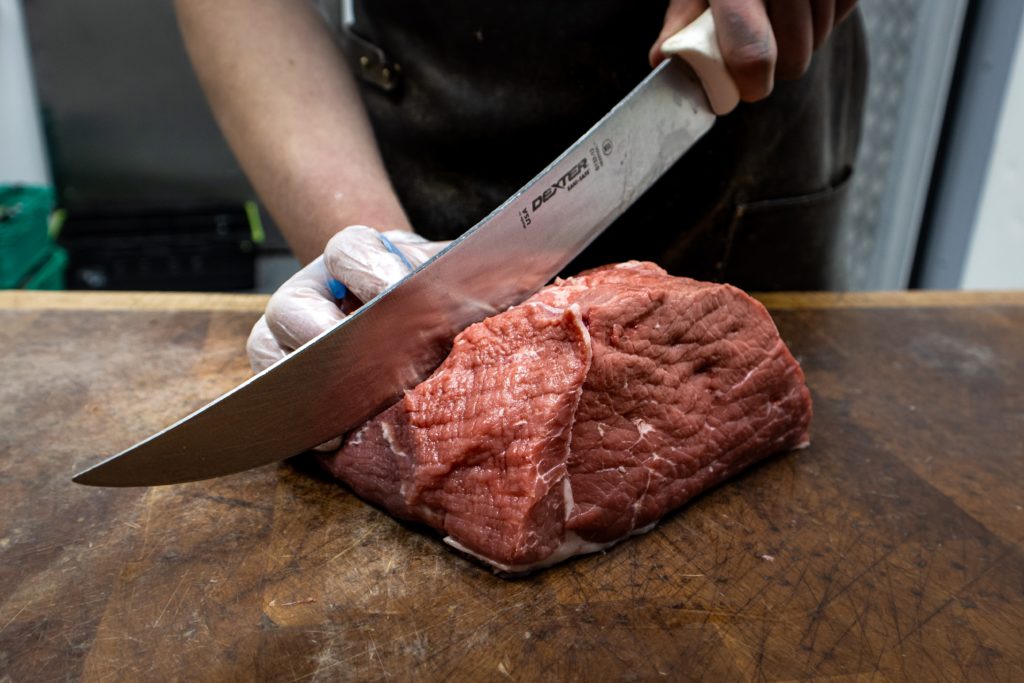Raw Pet Milk Embargo Hawaii
July 15, 2021Dr. Ted Beals: An Appreciation
September 1, 2021
On June 11, Representatives Thomas Massie (R-KY) and Chellie Pingree (D-ME) introduced the Processing Revival and Intrastate Meat Exemption Act House Resolution (H.R. 3835), also known as the PRIME Act; Senators Angus King and Rand Paul have introduced companion legislation Senate Bill 2001 (S.2001). H.R.3835 currently has 43 cosponsors and S.2001 has six. Passage of the PRIME Act would give states the option of allowing the sale of custom processed meat direct to the consumer and in venues such as grocery stores, hotels, and restaurants.
The onset of the COVID crisis in March 2020 increased the wait times for small farmers and ranchers to send their livestock for slaughter and processing; that trend has continued since. It isn’t uncommon for slaughterhouses in numerous areas around the country to be booking into 2023. The recent ‘ransomware’ attack against the world’s largest meat company, JBS, is a warning that future cyber attacks against one of the major meat packers could push the wait for small producers even further out. As it is, the inadequate slaughterhouse infrastructure in the U.S. will be forcing more livestock farmers to choose between either violating the law or going out of business. A sure sign of a bad law is one that otherwise law-abiding citizens violate with regularity. Unless Congress acts soon, that could be the future for the Federal Meat Inspection Act (FMIA).
State legislatures have passed several bills during the 2021 session to strengthen slaughterhouse infrastructure. Arkansas passed legislation establishing a state meat inspection program (Oregon passed similar legislation in 2020). Montana passed an Interstate Meat Compact Act which would allow the shipment and receipt by Montana businesses of state-inspected meat from other states that were also members of the compact; federal law prohibits this practice, so the Montana legislation taking effect is contingent on either Congress amending the FMIA or a successful court challenge to that Act within the next four years.
Both Colorado and Nebraska passed meat share bills, allowing someone with an undivided ownership interest in a herd of animals to obtain custom slaughtered and processed meat from those animals; Wyoming passed a meat share law in 2020.
At the federal level, legislators have introduced bills this session that would allow the sale of state-inspected meat in interstate commerce; current law only allows the shipment of state-inspected meat across state lines if the plant slaughtering and/or processing the livestock has no more than 25 employees and that plant has been approved to participate in the Cooperative Interstate Shipments (CIS) program. Plants cannot join the program unless the state elects to participate in the CIS program; to this point, only seven of the 29 states with their own meat inspection programs have done so.
All of these state and federal efforts can improve slaughterhouse infrastructure, but none of them would be as effective as passage of the PRIME Act. As Massie has pointed out, allowing the sale of custom meats would lead to the greatest increase in slaughterhouses. Many of those interested in starting up custom facilities—if the PRIME Act became law—would not want to invest in a state- or a federally-inspected slaughterhouse (where both an inspector would be present every time the plant was in production and a HACCP plan would be a requirement).
The biggest criticism of the PRIME Act is that it would jeopardize food safety, but the evidence is otherwise. In 2020 the nonprofit Farm And Ranch Freedom Alliance (FARFA) submitted a Freedom of Information Act request to USDA’s Food Safety Inspection Service (FSIS) seeking to find out the number of foodborne illness outbreaks attributed to the consumption of custom slaughtered and processed meat from 2012 until June 2020; the FSIS response was zero. By contrast over the past three years, there have been several multi-state outbreaks attributed to consumption of USDA-inspected beef that sickened 106,209 and 403 people, respectively. With many federal and state plants—particularly the large federal facilities—stretched beyond capacity more than ever, passage of the PRIME Act would improve the quality control of our nation’s meat supply. In effect, the bill is a food safety measure.
H.R. 3835 has been assigned to the House Committee on Agriculture; S.2001 has been assigned to the Senate Committee on Agriculture, Nutrition and Forestry. Look for action alerts from the Weston A. Price (WAPF) on this critical legislation.
Action Alert
PRIME Act needs your support in the new Congress!
Photo Credit: “Meat” by Kyle Mackie on Unsplash.com

